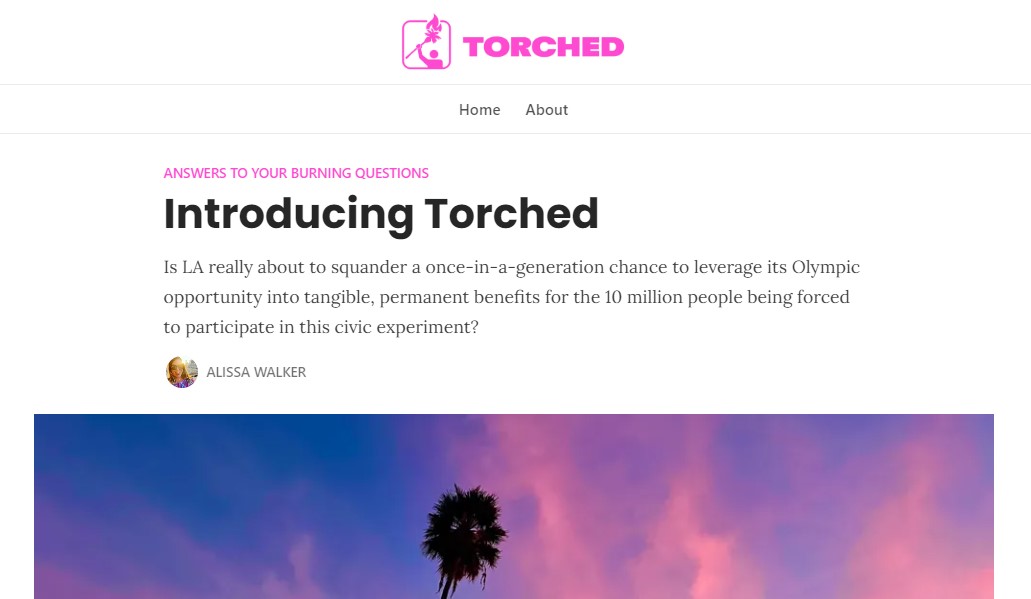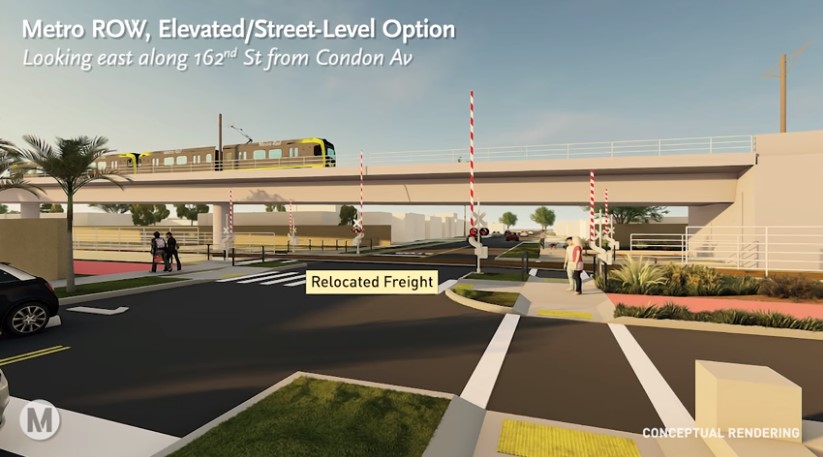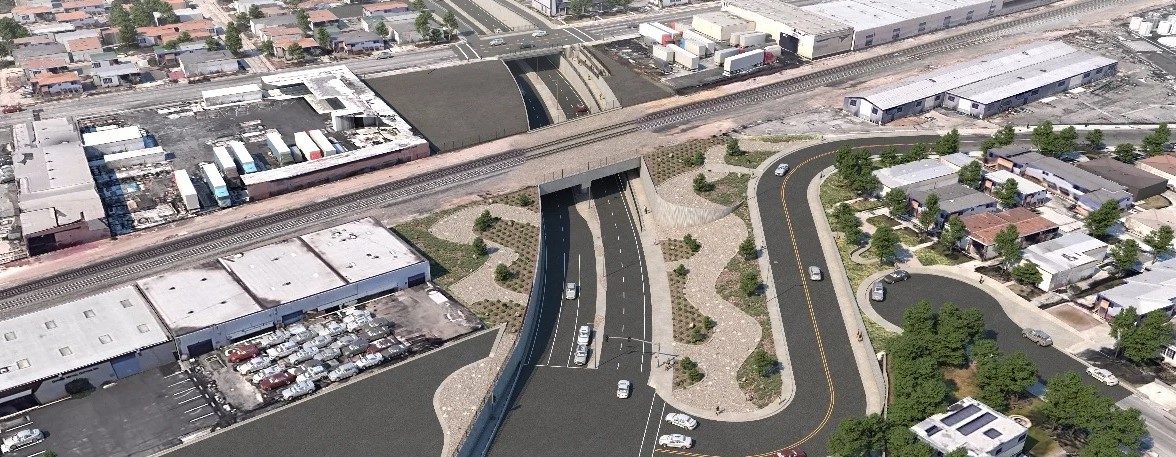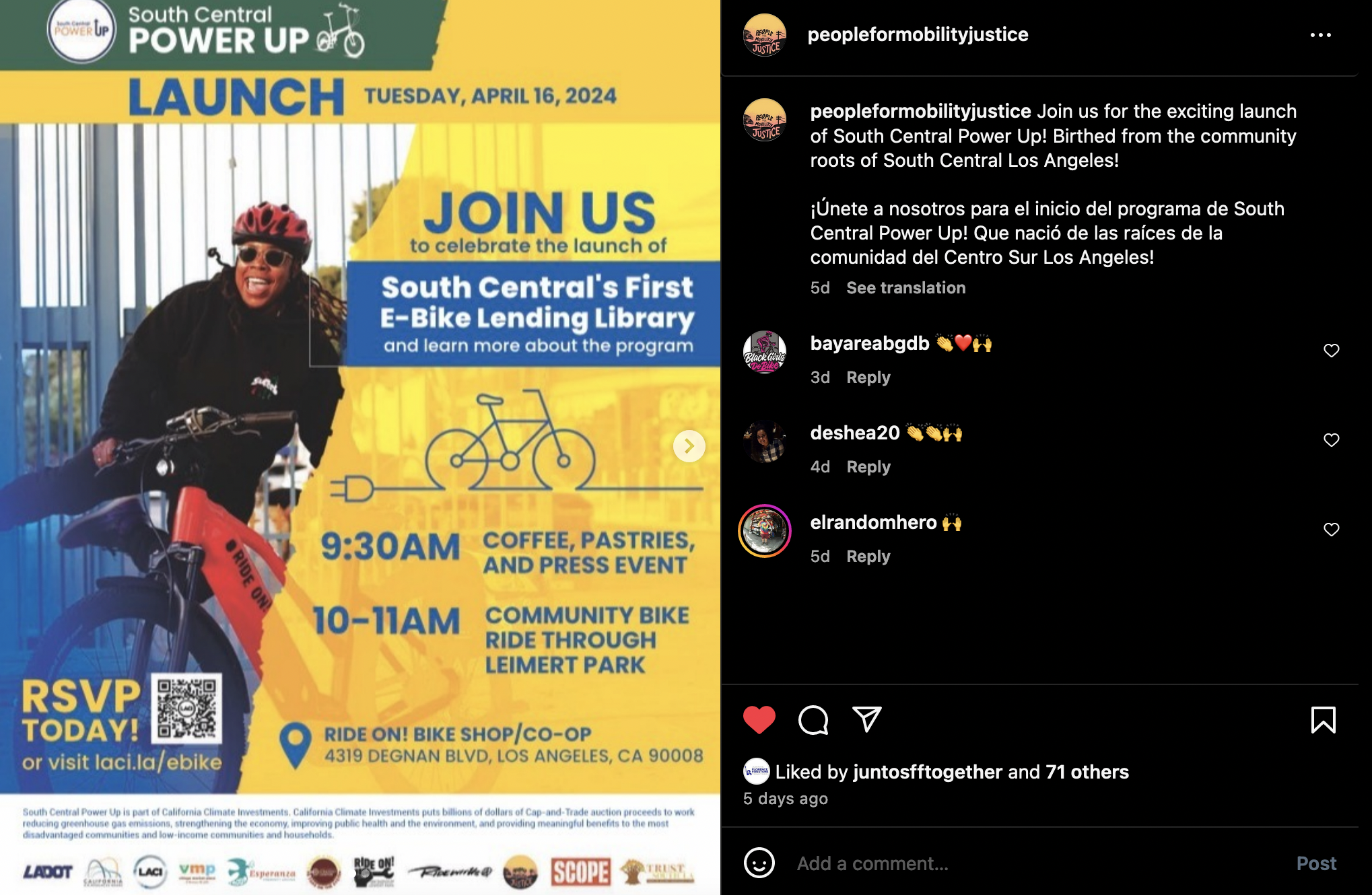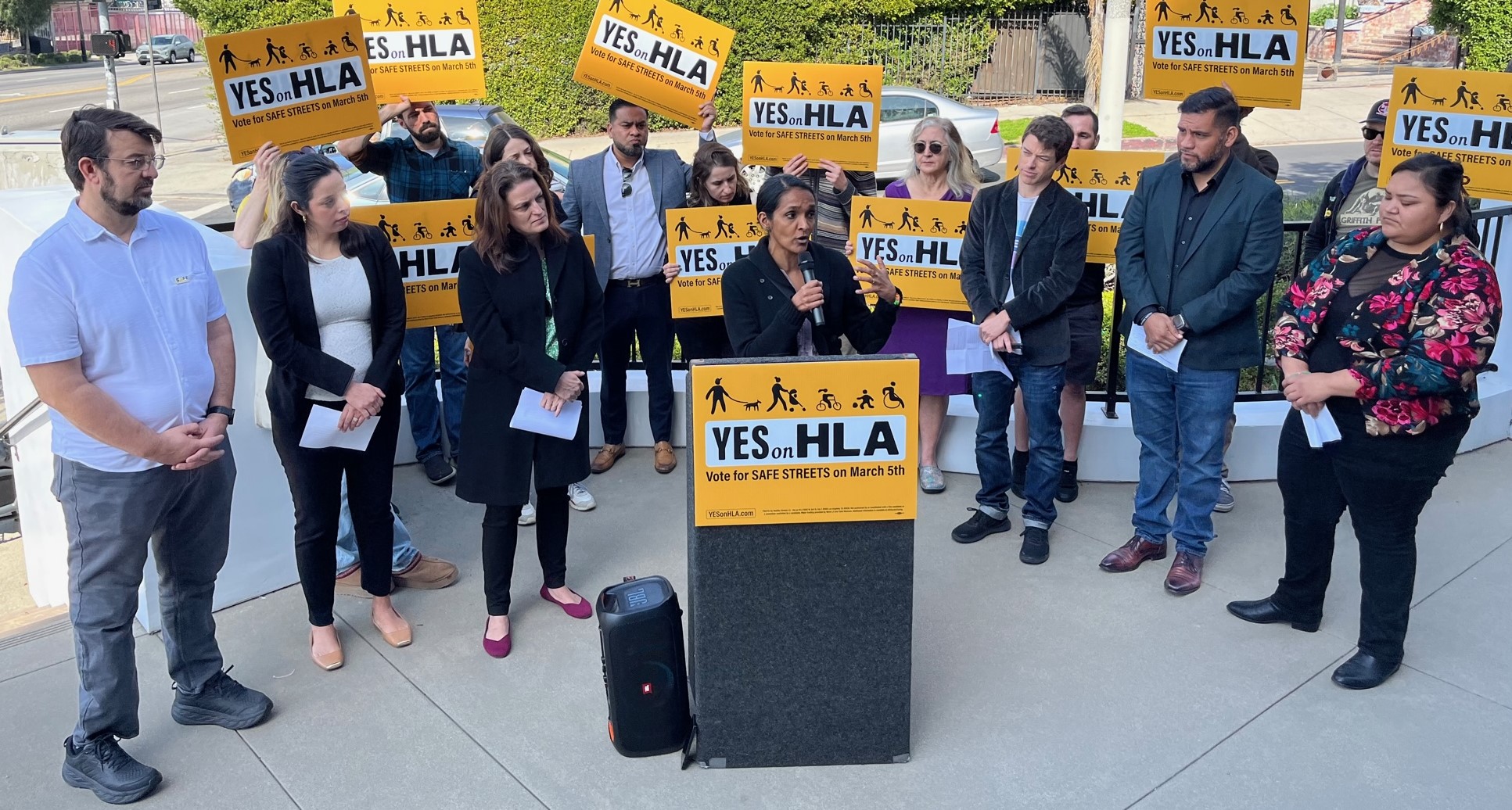A Review of the Metro Sector Governance Council’s Meet and Confer
9:16 AM PST on March 5, 2010
(Author's note: this write-up was delayed when I was hit with a particular vicious bout of flu that made me bed ridden for 9 days. But since no one in the media (including Metro's own bloggers!) attended it is still timely and informative as the sole coverage of this event. - DG)
 Leahy's vision was a big topic of conversation for activists and pols alike. Photo: Fred Camino/Flickr
Leahy's vision was a big topic of conversation for activists and pols alike. Photo: Fred Camino/FlickrI previously noted regarding the Feb. 16th quarterly Metro Sector Governance Council Meet and Confer meeting that in attending my hope was it would be somewhat educational. And was it ever!
The main reason I attended was to present to the assembled Council members and Metro management a nine point list of items of concern derived from input by several Transit Advocate members. My intent was to use this opportunity to raise key issues of regional concern. The list has now been posted on the SO.CA.TA website.
By far the most interesting agenda item was #2, Metro CEO Art Leahy's remarks which it was promised would include clarification on the "Continuing Role of Sector Governance Councils."
As my previous commentary "Metro in Transition" noted, Leahy is disbanding the sectors in favor of having bus operations managed by function and overseen by Executive Officers who report to the Chief Operations Officer.
Yet Leahy simultaneously has committed to keeping the Sector Governance Councils in place, continuing their role as geographical based oversight of bus service. How this will all work out has been more than a little vague, and many attendees were keenly interested in hearing Leahy provide more details.
In his remarks Leahy noted statistics that bus ridership compared to 20 years ago is down about 35%. And that lines which serve the L.A. central business district carry only 50% of seated capacity for riders with a destination in downtown. Leahy decried these numbers as proof Metro is running excess service and is in need of restructuring how it operates.
But he noted those numbers are somewhat mis-leading as they don't account for the substantial growth of the municipal operators during the period. And also that rail now carries about 25% of Metro's total boardings (300,000 per day) whereas prior to 1990 that number was zero. Leahy noted the Bus Riders Union uses these figures to justify their claims of the need to augment service. But he disagreed with this analysis and felt the decline calls for running service better, not simply flooding the streets with service. Although Leahy did concede for lines that are overcrowded more service may be justified.
Metro is in the midst of recruiting a new Chief Operations Officer, and Leahy stated he has deliberately filled the positions of Executive Directors for Maintenance and Transportation with interim appointments until such time as the COO is in place before permanent hiring occurs. This along with the other structural changes going on at Metro and the budget crisis lends credance to the perception the agency seems unsettled currently. But Leahy noted he is a longtime optimist on Metro's prospects, given its bold plans to expand the rail system and his commitment to work toward improving service quality.
Leahy briefly acknowledged that among those in the audience were City of Torrance Transit Director Kim Turner along with Mike Bohlke (deputy to Metro Board member Pam O'Connor) and Karen Heit (deputy to Metro Board member Diane DuBois). Obviously like me they realized this was an important opportunity to hear Leahy speak at length on cogent issues.
Continuing his remarks, Leahy stated Metro is still working on how it will coordinate with the Sector Councils under the new centralized management structure he is putting in place. Also the new roles of the various incumbent Sector General Managers are being worked on. Dana Coffey of the South Bay is now heading Metro's Labor Relations and Richard Hunt of the San Fernando Valley will assist in fixing the troubled TAP program. Mark Maloney of the Westside/Central and Jack Gabig of the San Gabriel Valley for now stay in place but despite some rumors swirling about their fates Leahy seemed to be hinting he hopes they will stay at Metro in new roles yet to be determined much as Coffey and Hunt are doing.
Leahy concluded his remarks by making sure all the Council members present know his e-mail address and phone number, encouraging them to contact him with any issues they feel are not being addressed. And with that he opened the floor to questions.
Glenn Rosten of the Westside/Central Council asked whether was there a way to guarantee after the Councils engage in the onerous process of overseeing service change proposals with public hearings, etc. that it not end up as a futile exercise with the Board summarily cancelling the plans. This is a sore point with the Councils after this exact scenario happened in mid-2008.
Leahy in response outlined the incremental approach he is taking to edging the Board toward the touchy issue of the looming budget crisis and what should be done to address it. Instead of a head on approach which risks a quick denial, closing options. In other words if you initially mention the possibility of service cuts the impulse on the part of the Board is to say "don't cut any service!" Leahy's approach includes providing the Board with reports on the looming deficit to get them to agree that there is a budget gap and something needs to be done to address it. Simultaneously the level of staffing is being evaluated so employee reductions can be offered as a partial solution. This of course is creating some nervousness among the staff as to whose jobs may be on the chopping block. Leahy has also been meeting with key stakeholders (municipal operators, unions) so they are aware of the situation and implications.
A new survey of Metro users in Leahy's view shows that resistance to fare increases may not be as entrenched some Board members appear to believe. He seems to be ready to make that argument to reluctant Board members.
Wally Schidler of the Gateway Cities Council asked will budgets still be allocated by bus operating division for Councils to monitor. Leahy stated Councils will continue to have a role in monitoring the budget. Schidler also asked what are the prospects of the Sector Councils getting authority to make changes to Tier 1 services without having to seek approval from the Board (they already have this authority for Tiers 2 and 3). While not being explicit I have the impression Leahy didn't see that as happening, at least not for the foreseeable future. Leahy noted the statistic that 20% of buses run hot (ahead of schedule) as an example of the sort of issues he hopes Sectors can help the agency address.
Kymberleigh Richards of the San Fernando Valley Council suggested that the focus of the Councils should be facilitating public input on service change proposals and occasional public workshops to provide a venue for comments on service related issues, complaints/commendations, etc. Leahy assented that this would be a welcome framework for the Councils to aid the agency in exploring options to meet the challenges it faces.
Alex Gonzales of the San Gabriel Valley Council queried would there be possibilities for making funding more equitable. He further asked could the current Formula Allocation Procedure be open to change to have less monies go to the municipal operators and provide more funding for Metro's services. And lastly he raised the possibility that some routes should be looked at for being handed off to the appropriate municipal for operations to help cut costs. Leahy prefaced his response by noting he was being very careful in what he would say on these sensitive topics. He amplified that Metro is party to 5 labor contracts, two of which have provisions that preclude the handing off of service. But he felt he could be open to Metro undertaking reductions in service where perhaps after a year lapsed one of the munis commenced operating service in that corridor.
The two principles that drive service are need and fairness. Leahy noted even in areas where transit demand is minimal the residents still pay taxes and thus have a reasonable expectation of a certain level of service being provided. He also bluntly said he doesn't care whose logo is on the vehicle that provides the service--his focus is on quality and providing value for the tax dollars spent. Drawing on studies done during his tenure as CEO of OCTA, Leahy decried the rail service operating on the coastal route (generally known as the LOSSAN corridor) by Metrolink, Amtrak and the Coaster for lack of coordination, citing the separate ticket windows for Metrolink and Amtrak in Union Station and how despite being a mere 30 feet apart they don't sell each other's tickets or can provide information about the service of the other agency because "we don't operate that". Leahy was especially vocal in noting what in his view was the disgrace that for 15 years Metro had turned a blind eye to the long lines at its Union Station ticket window during the end of the month when people often had to wait upwards of an hour to purchase their pass for next month. "If you suffered through that year after year of course you would hate the agency that put you through that". Leahy added an extra window to reduce the time patrons had to wait to be served, an action he saw as being long overdue.
Ralph Franklin of the South Bay Sector asked some administrative question about how will the Council operate now that the staff overseeing operations are being relocated to Metro's headquarters. Leahy assured Mr. Franklin the intention isn't to have a "fly by night" arrangement for coordinating with the councils but instead have a designated liaison providing a link between the Council and Metro upper management.
Jerard Wright of the Westside/Central Sector zeroed in on issues relating to the implementation of TAP. Leahy acknowledged the depth of problems while seeming reluctant to engage in Metro-bashing. He did admit the lack of a firm plan for TAP coordination with the munis was a great failure of the agency that should be rectified forthwith, along with resolving the fundamental problems with the technology.
Catherine Bator of the Westside/Central Sector asked what would Leahy contemplate doing to solicit more input from non-riders. Leahy indicate this may entail more publicity by the agency to confront the widely held perception of bus riding being unappealing. Continuing, Leahy noted a key issue for him is improving the interface of bus and rail services. He expressed dismay at Little Tokyo Gold Line station making no provision for bus service. And Leahy shared his opinion that interfacing Metro service with future high speed rail is something he considers a Sector Council issue.
A Council member who didn't give her name made a brief statement of her belief that
Metro should explore experimental services, such as Bus Rapid Transit and shuttles.
Don Szerlip and Devon Demming of the South Bay Council in separate comments requested consideration be given to having a public restroom at Artesia Transit Center, given its remote location and the often long waits for connecting buses that occur there. Leahy noted current policy discourages such facilities as they are "difficult to maintain" but he promised to investigate the situation and get back to the the Council on any viable options to address it.
Wally Schidler of the Gateway Cities Council stressed the need for connectivity between Metro and the munis and went so far as to propose the need for a single regional fare.
One last nugget of news Leahy shared with us is Metro currently is in talks with the Dodgers and AQMD exploring options for the resumption of shuttle service linking Union Station and Dodger Stadium.
Next Interim Chief Operating Officer Lonnie Mitchell came forward to make a brief presentation. He noted he had so far met with four of the five Council chairs and is seeking ways to improve the process by which the Councils oversee service as an outcome of management reorganization.
Conan Cheung, Metro's Deputy Executive Officer for Operations Service Planning and Development, next came forward to discuss the status of the Blue Ribbon panel the Metro Board approved the formation of last October. This group of stakeholders and transit professionals is tasked to formulate a vision that encompasses an integrated system, doing more with less and allocating resources better. The 1st meeting was held February 2nd and reached these initial conclusions:
*rail is the backbone
*bus provides linkages, last mile connectivity
*system easy to use is the goal
*clean/safe/on-time
*address perceptions of transit
Meetings are being held the 1st Tuesday of each month with an aim to have implementation of the service concepts that it produces occur later this year.
The last speaker was Lynda Bybee, Deputy Executive Officer - Regional Communications Programs. She promised some of the ideas mentioned in the meeting would be infused into the agendas of future Council meetings. Also that specific Metro staff are being tasked to act as Council liaisons on an interim basis until the new structure for interfacing is put in place.
If nothing else the Meet & Confer made it abundantly clear Art Leahy is putting his stamp on Metro and that confronting some of its longtime bugaboos are among the things he intends to tackle. It should make for an interesting process to keep tabs on.
Stay in touch
Sign up for our free newsletter
More from Streetsblog Los Angeles
Metro Looks to Approve Torrance C Line Extension Alignment
Selecting the relatively low-cost hybrid alternative should help the oft-delayed South Bay C Line extension move a step closer to reality
This Week In Livable Streets
CicLAvia returns to Venice Boulevard, Metro board committees, L.A. City Council Transportation Committee, Metro budget theater, and more
